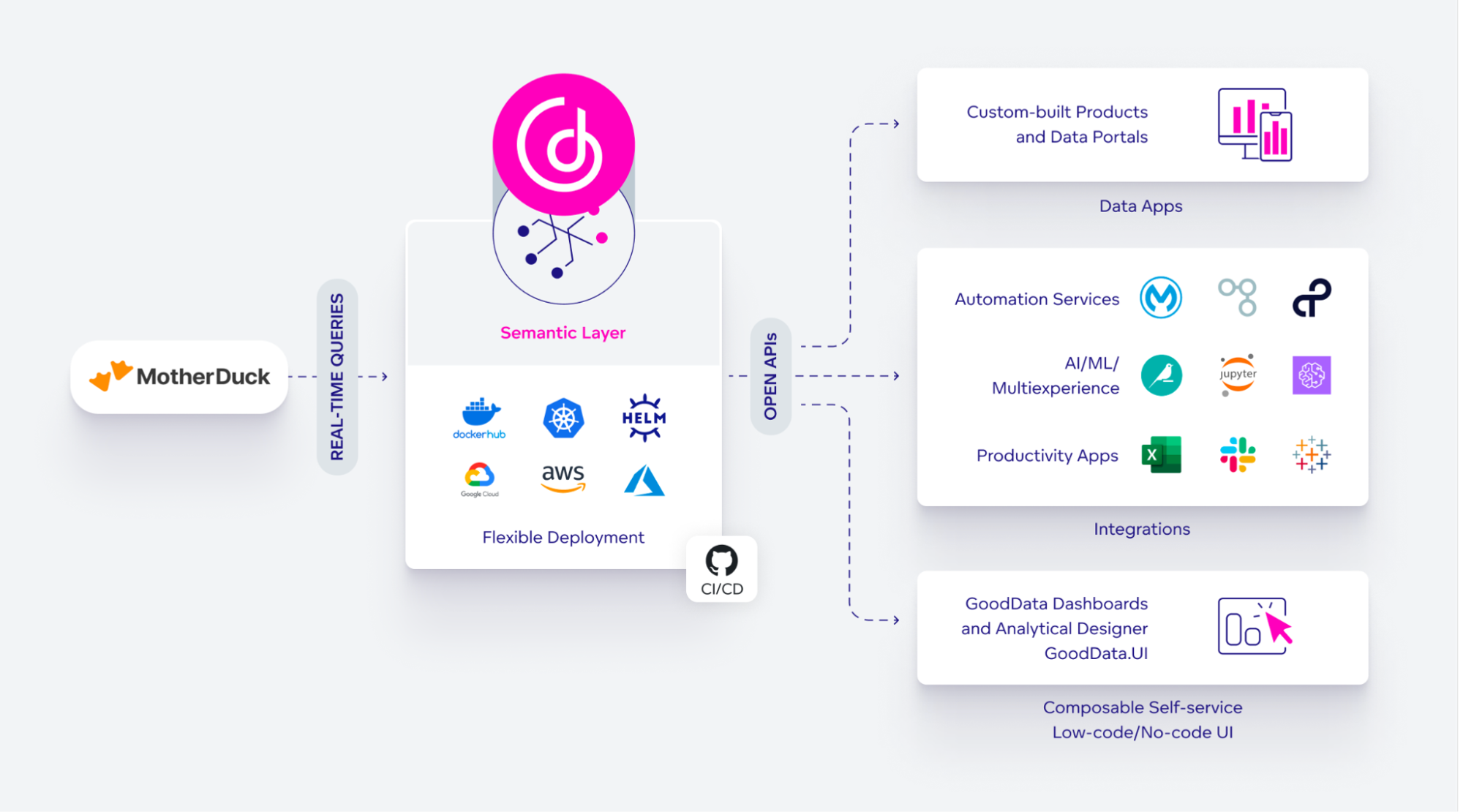GoodData and MotherDuck Take Flight Together
Written by Adela Sykorova |

Table of Contents
Exciting news! We've seamlessly integrated MotherDuck with GoodData, drawing upon our extensive experience with diverse databases and rigorously testing to ensure top-notch performance and efficiency.
What are DuckDB and MotherDuck?
DuckDB is an in-process online analytical processing database (OLAP), offering a lightning-fast, feature-rich, open-source database. It can effortlessly operate across various programming languages, including web browsers.
MotherDuck takes this a step further, transforming DuckDB into a service with added features. These include seamless connection through standard protocols, and optimizing SQL executions with a unique hybrid execution concept.
Check out our engineer-focused article for a more in-depth look at what DuckDB and MotherDuck can do.
How MotherDuck and GoodData are making a splash
Comparative tests have revealed that MotherDuck outperforms competitors, delivering faster results and excelling in low latency and high concurrency scenarios. This makes it a reliable choice for organizations aiming to optimize their analytics workflows with faster query results and efficiency in handling large data sets.
Strategic investment for lower costs
Expect significantly lower Total Cost of Ownership (TCO), not just because MotherDuck is a new player in the market, but also thanks to the inherent efficiency of the engine itself. This integration is a strategic investment for businesses seeking innovation and efficiency in their data analytics journey.
With its straightforward pricing model, MotherDuck brings simplicity and transparency, avoiding the complexities seen in other solutions. Unlike Snowflake’s minute-based pricing, MotherDuck’s serverless architecture offers a more predictable approach, charging users based on the data volume they store or process.
Seamless integration with GoodData's semantic layer
MotherDuck seamlessly integrates with GoodData's semantic layer, which acts as an abstraction of the physical data, and decouples end users from the sometimes complex back-end logic. The semantic layer provides a higher-level metric language, enabling smooth migration between database engines.
MotherDuck simplifies the transition for GoodData users migrating from platforms like Snowflake, BigQuery, or Redshift. The cloning of workspaces is a seamless process as users can effortlessly connect them to the MotherDuck data source, enabling parallel testing. This level of flexibility underscores MotherDuck’s dedication to delivering a solution that is both efficient and user-centric, empowering organizations to smoothly adapt and evolve their data ecosystems.

Who can benefit from the GoodData and MotherDuck integration?
If you’re wondering if this integration aligns with your analytics goals, see if you can find yourself in the following scenarios:
- You want to deliver analytics over small to midsized datasets to a vast user base with remarkably low latencies (unlike conventional cloud-based Data Warehousing offerings).
- You want to future-proof performance, while effectively managing costs.
Try the integration for yourself
If you’re interested in trying GoodData with MotherDuck, you can register for our labs environment here. Alternatively, get a free trial to see GoodData in action.
Why not try our 30-day free trial?
Fully managed, API-first analytics platform. Get instant access — no installation or credit card required.
Get startedWritten by Adela Sykorova |

